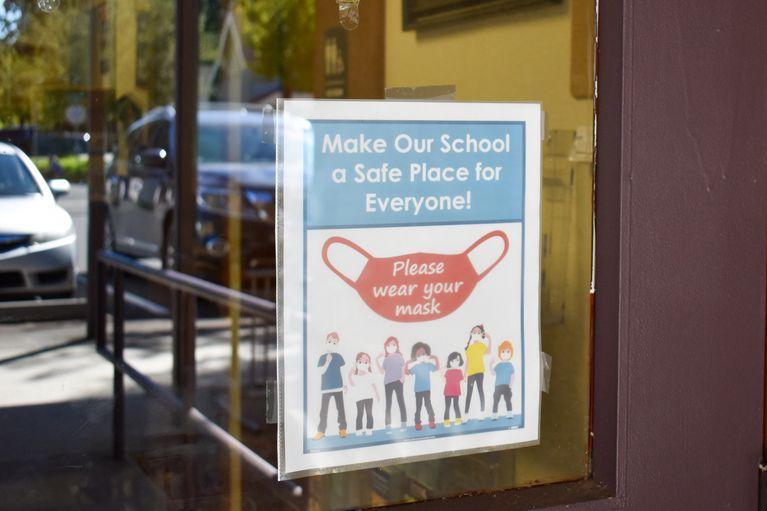
It was the second day of largely critical public testimony on plans from the Oregon Health Authority to extend Oregon’s indoor mask mandate by enacting a permanent rule.
The state’s temporary masking requirement expires in early February and can only be extended through a permanent regulation.
In a press conference last week, state epidemiologist Dean Sidelinger said the state will revoke the masking rule when COVID-19 no longer threatens to overwhelm the state’s hospitals and therapeutic drugs to treat covid-19 are more widely available.
But at an online hearing focused on masks in schools, parents urged OHA to drop the rule immediately or allow the temporary rule to expire.
They said children should not have to mask to protect the largely older populations at the highest risk from COVID-19. Many parents, like Peter Cottle, argued that with vaccines now widely available, parents should be allowed to choose whether or not their children need to wear masks in school.
“Since day one of my child’s life I have been consciously and at times instinctually weighing the risk and benefits of everything in my child’s life,” Cottle testified. “Today I can not reconcile the very low risk posed by COVID-19 to my child and the wide availability of vaccines with the drawbacks of continuing masking requirements.”
Many parents said they spoke from personal experience. They said masking made it harder for their children to learn to read, to play basketball and to perform musical theater.
Some said that as parents of children with disabilities or neurodivergence, masks were particularly harmful to their children. The parents said that when children wear them or are taught by staff who have them on, it worsens speech delays or makes it harder for some children with autism to learn to recognize emotions from facial cues, for example.
The Oregon Department of Education has a “reasonable accommodations” policy that allows more flexibility, including individual exceptions to the mask requirement for children with disabilities, though it doesn’t exempt any broad groups from the rule.
Others gave testimony that included misinformation or conspiracy theories regarding masks and vaccines.
Some school board leaders also testified in opposition, including Spencer Chow, a member of the Reynolds School Board, who noted the low death rate from COVID-19 for children 18 and under.
“Continue collecting and providing data, because we need you to. Communicate and support school districts where appropriate, because we need you too,” Chow said at Monday’s hearing. “But ultimately, we need you to remove state-force requirements, or at the very least, put the responsibility onto local school districts without penalty.”
Four of the five board members of the Redmond School District in Central Oregon submitted testimony opposing the masking rule. They said continuing the mask requirement could cause a loss of funding for the school district, citing high numbers of students who have unenrolled.
Oregon is one of at least fifteen states that require masks in schools. The Centers for Disease Control and Prevention and the American Academy of Pediatrics recommend wearing face coverings as a measure to limit the spread of COVID-19.
This story was originally published by Oregon Public Broadcasting.